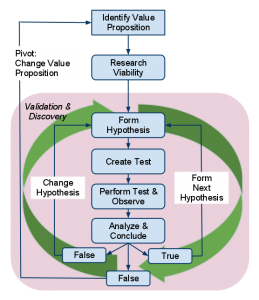
Over the past twenty years we’ve worked in various intellectual property and craft based businesses. There has often been a dichotomy – those creative elements driving the company were focused on gaining knowledge by research, communication and experimentation. They often did so with a keen eye toward commitments and corporate goals. The management teams often focused on traditional financial and productivity metrics – those taught in MBA programs: revenue, profit, work performed, on time delivery, et cetera.
Intellectually based business pursuits – those in emerging markets, with new product and services or steeped in craft – require the discovery, development and application of knowledge. The more is known about customers, markets, technology domains, product development and service delivery the greater the ability to provide the right products and services to a known clientele.
 ~ Productivity is a byproduct of learning ~
~ Productivity is a byproduct of learning ~
Learning, by nature, is driven by curiosity, real-world experiments and repetitious activity. The more opportunities to test ideas and conjectures, observe the results and reinforce what works and what does not, the greater the opportunity to be productive and generate value. At the core, learning comes from repetition which exposes patterns (reinforcing knowledge) and allows for developing expertise through gaining deeper knowledge in a subject by steeping in its details.
~ Learning is driven by relentless repetition ~
The keys to accelerating success come from curious people (those who desire to learn) coupled with the perseverance to test ideas, learn and refine decisions. A good golfer may have taken 1,000 swings. An excellent golfer may have taken 10,000 swings. The scientist that makes a discovery is not one that has performed one test in a new field, but rather the scientist that has relentlessly tested ideas and pursued greater knowledge in a field of interest.
To drive success a significant focus must be placed on organizational learning. While measuring traditional business metrics is valuable, one has to realize that learning is not so black and white, but requires the same reinforcement (if not more) as it is the engine that drives productivity and profitability.
- How frequently are ideas asserted, tested and resolved?
- Does the business leadership relentlessly pursue “why”?






